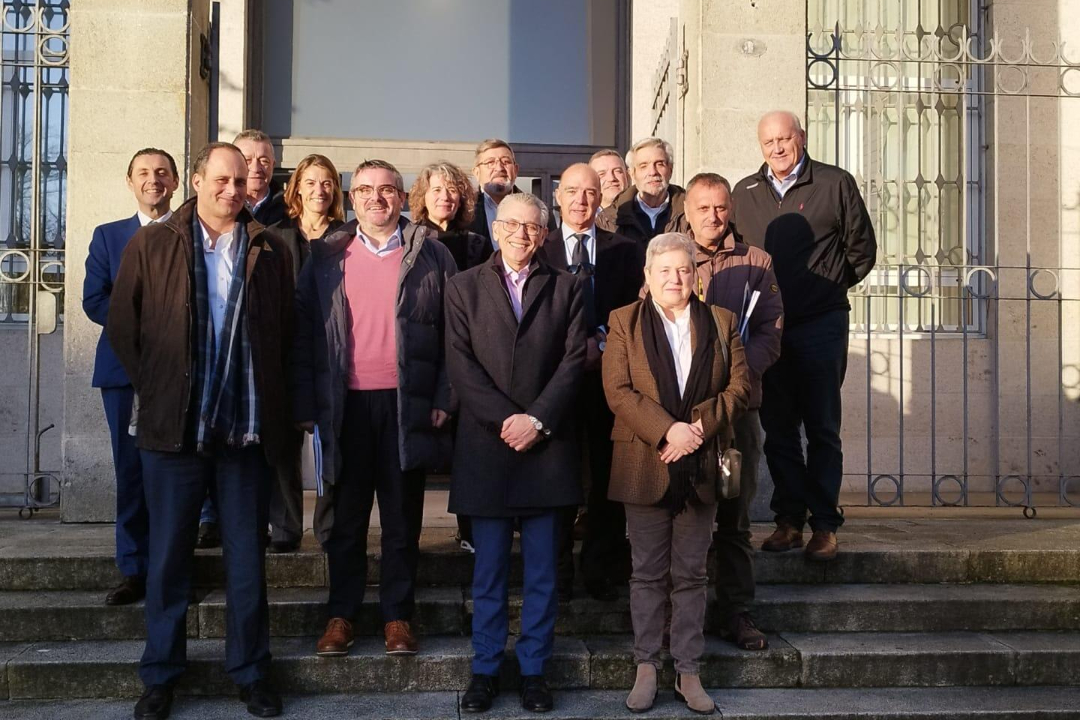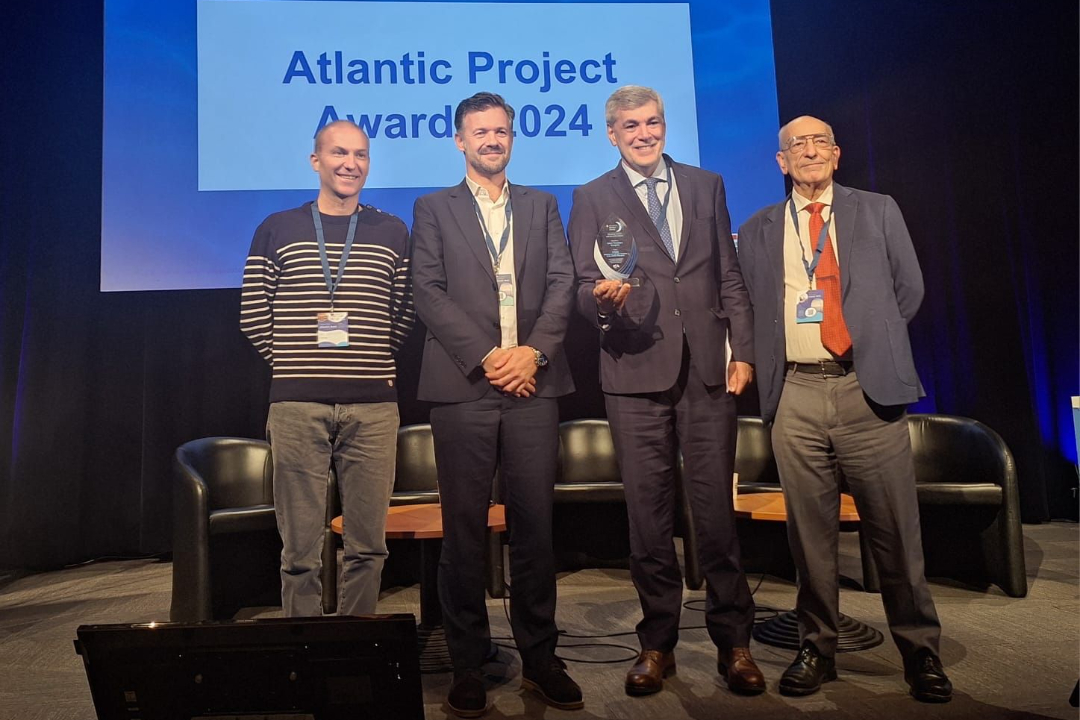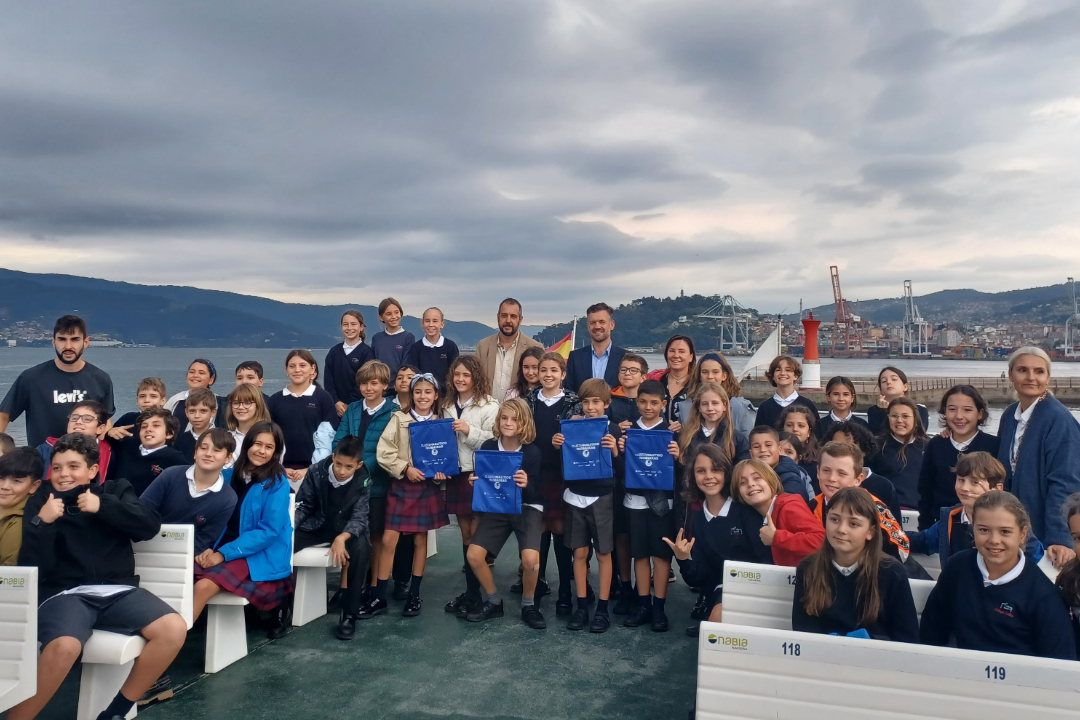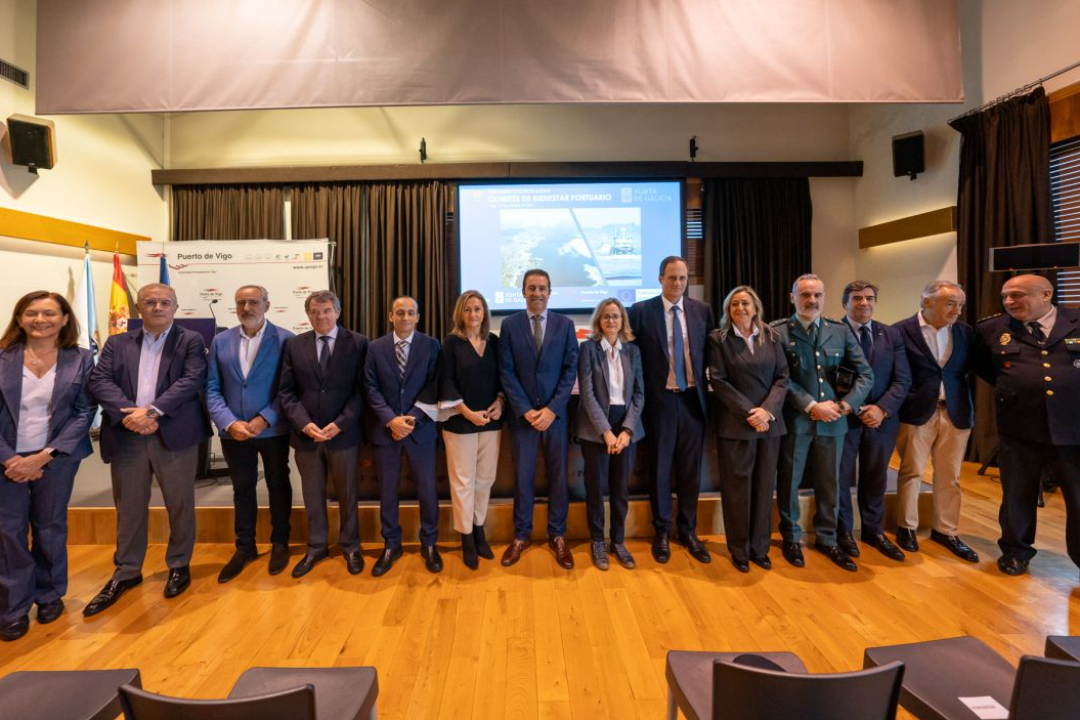THE PORT OF VIGO LAUNCHES AN ACTION PLAN TO STRENGTHEN ITS HISTORICAL LEADERSHIP IN FISHING
Dec 14, 2023, 1:22:00 PM

The Port of
Vigo has decided to capitalize on its strengths and initiate a process of
reinvention and modernization to strengthen its historical leadership in
fishing. To achieve this, it has convened its Advisory Council to reach a
consensus on an Action Plan aimed at becoming a blue port, a leading fishing
logistics hub in Europe, and a global benchmark.
As
highlighted by the President of the Port Authority of Vigo, Carlos Botana,
after a first meeting with the Fishing Advisory Council - composed of over
twenty El Berbés users - and later with the Director General of Fishing,
Aquaculture, and Technological Innovation of the Xunta de Galicia, Antonio
Basanta, "the Port of Vigo has the capacity to counteract the continuous
attacks on the sector, and for that reason, we must highlight it
together."
Brexit, the
Covid-19 pandemic, the invasion of Ukraine, fishing gear limitations, or the
Spanish Government's refusal to lower the VAT on fish "have strongly
affected the fishing sector, causing great uncertainties in the global economy,
leading to increased energy and fuel costs, rising prices, and a decline in
fish consumption," Botana emphasized.
In fact,
despite fish being present in 92% of shopping baskets, 39% of Spaniards have
reduced their consumption. Change in trend Due to this global context, the
movement of fish for human consumption at the Port of Vigo has accumulated
consecutive months of declines, although this situation has started to reverse.
According to the latest statistical data, there has been a +0.4% increase in
October, compared to a widespread -9% decline in Spain.
Nevertheless,
the Port Authority of Vigo has conducted a detailed analysis of the market. In
recent weeks, its leader, Carlos Botana, has been meeting with different users
and visiting their companies to understand their current situation and
"together, strengthen that historical hegemony that has made us a global
benchmark." According to this analysis, Vigo surpasses its main
competitors in infrastructure, price, number of species, and buyer chains.
It also has
better shelter, safety, maneuverability, longer fishing docks and basins, and,
above all, high-quality and 100% traceable fish. Innovation and digital
transformation "Our goal should be to highlight what makes us
strong," Botana said, emphasizing the need to initiate an Action Plan
based on innovation and digital transformation to increase the added value of
fresh fishing.
This Action
Plan consists of 12 initiatives, presented in recent hours to the Fishing Port
Advisory Council and the Regional Ministry of the Sea. They will be analyzed in
more detail through various working groups, where "listening to the sector
and starting to work together to find solutions" will be prioritized.
The
response of the Vigo fishing sector to the Action Plan has been unanimous: it
is necessary to take risks and reinvent itself, seek different ways to market
fish products, and make them more interesting for the end consumer. "We
are all necessary and depend on each other," they emphasized, showing
their "full willingness to collaborate." These proposals are in line
with those launched by the Port Authority itself, which, after a thorough study
of the competition, has proposed a series of ideas to establish new digital
communication channels to inform the public about the Fishing Port, as well as
the creation of a unique and innovative brand image that ensures the quality
and sustainability of the products reaching the end consumer.
Likewise,
the Action Plan advocates for streamlining administrative procedures, greater
digitization, increased online sales of fish products, the creation of a
dedicated logistics and commercial unit, and a fisheries observatory that
allows real-time access to data on downloads and sales in other ports. All of
this will be agreed upon with the sector through working groups, the Advisory
Council, which will meet periodically, and a Commission made up of experts in
the field supporting the development of this strategy. "We want the
Fishing Port to function as a collaborative unit, where there is greater
dialogue. A port open to everyone, as no one wants what they do not know,"
Botana emphasized, expressing optimism about the unity shown by the sector.


